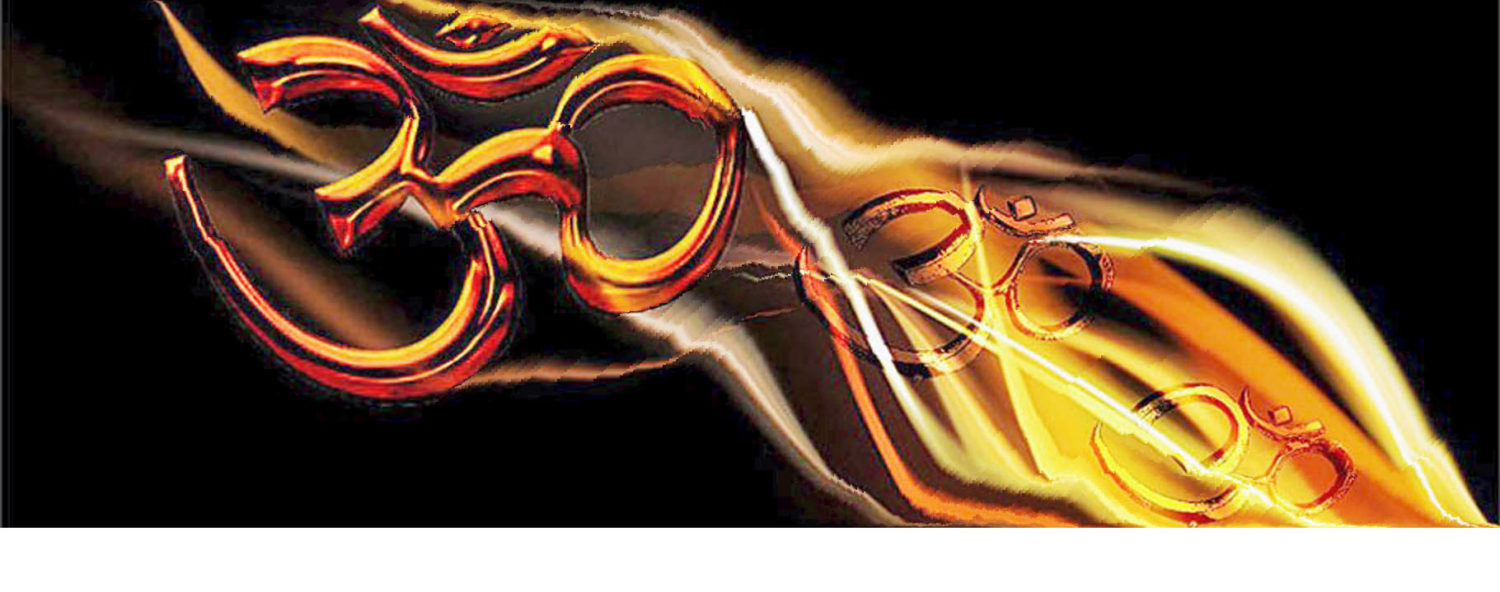Steps to Realization
First among the qualifications required of the aspirant for Jnâna, or wisdom, come Shama and Dama, which may be taken together. They mean the keeping of the organs in their own centres without allowing them to stray out.
….
Thus the mind acts through two agencies — one external, and the other internal. When I see things, my mind goes out, becomes externalized; but suppose I close my eyes and begin to think, the mind does not go out, it is internally active. But, in either case, there is activity of the organs.
….
So in order to control the mind,, we must first be able to control these organs. To restrain the mind from wandering outward or inward, and keep the organs in their respective centres, is what is meant by the words Shama and Dama. Shama consists in not allowing the mind to externalise, and Dama, in checking the external instruments.
….
Now comes Uparati which consists in not thinking of things of the senses. Most of our time is spent in thinking about sense-objects, things which we have seen, or we have heard, which we shall see or shall hear, things which we have eaten, or are eating, or shall eat, places where we have lived, and so on. We think of them or talk of them most of our time. One who wishes to be a Vedantin must give up this habit.
….
Then comes the next preparation (it is a hard task to be a philosopher!), Titikshâ, the most difficult of all. It is nothing less than the ideal forbearance — “Resist not evil.” This requires a little explanation. We may not resist an evil, but at the same time we may feel very miserable. A man may say very harsh things to me, and I may not outwardly hate him for it, may not answer him back, and may restrain myself from apparently getting angry, but anger and hatred may be in my mind, and I may feel very badly towards that man. That is not non-resistance; I should be without any feeling of hatred or anger, without any thought of resistance; my mind must then be as calm as if nothing had happened.
….
The next qualification required is Shraddhâ, faith. One must have tremendous faith in religion and God. Until one has it, one cannot aspire to be a Jnâni. A great sage once told me that not one in twenty millions in this world believed in God. I asked him why, and he told me, “Suppose there is a thief in this room, and he gets to know that there is a mass of gold in the next room, and only a very thin partition between the two rooms; what will be the condition of that thief?” I answered, “He will not be able to sleep at all; his brain will be actively thinking of some means of getting at the gold, and he will think of nothing else.” Then he replied, “Do you believe that a man could believe in God and not go mad to get him? If a man sincerely believes that there is that immense, infinite mine of Bliss, and that It can be reached, would not that man go mad in his struggle to reach it ?” Strong faith in God and the consequent eagerness to reach Him constitute Shraddha.
….
Then comes Samâdhâna, or constant practice, to hold the mind in God. Nothing is done in a day. Religion cannot be swallowed in the form of a pill. It requires hard and constant practice. The mind can be conquered only by slow and steady practice.
….
Next is Mumukshutva, the intense desire to be free.….. All the misery we have is of our own choosing; such is our nature…..We run headlong after all sorts of misery, and are unwilling to be freed from them. Every day we run after pleasure, and before we reach it, we find it is gone, it has slipped through our fingers. Still we do not cease from our mad pursuit, but on and on we go, blinded fools that we are.
…
When a man begins to see the vanity of worldly things, he will feel he need not to be thus played upon or borne along by nature, because that is slavery. When one realizes the truth of all this slavery, then comes the desire to be free; an intense desire comes. If a piece of burning charcoal be placed on a man’s head, see how he struggles to throw it off. Similar will be the struggles for freedom of a man who really understands that he is a slave of nature.
….
A Sage or a Wise One wants liberty from bondage; he finds that sense-objects are all vain and that there is no end to running after pleasures and pains. We have thus seen what Mumukshutva, or the desire to be free, is.
….
The next training is also a very difficult one. Nityânitya-Viveka — discriminating between that which is true and that which is untrue, between the eternal and the transitory. God alone is eternal, everything else is transitory. Everything dies; the angels die, men die, animals die, earths die, sun, moon, and stars, all die; everything undergoes constant change. The mountains of today were the oceans of yesterday and will be oceans tomorrow. Everything is in a state of flux. The whole universe is a mass of change. But there is One who never changes, and that is God; and the nearer we get to Him, the less will be the change for us, the less will nature be able to work on us; and when we reach Him, and stand with Him, we shall conquer nature, we shall be masters of phenomena of nature, and they will have no effect on us.
….
You see, if we really have undergone the above discipline, we really do not require anything else in this world. All knowledge is within us. All perfection is there already in the soul. But this perfection has been covered up by nature; layer after layer of nature is covering this purity of the soul. What have we to do? Really we do not develop our souls at all. What can develop the perfect? We simply take the evil off; and the soul manifests itself in its pristine purity,its natural, innate freedom.
….
Now begins the inquiry: Why is this discipline so necessary? Because religion is not attained through the ears, nor through the eyes, nor yet through the brain. No scriptures can make us religious. We may study all the books that are in the world, yet we may not understand a word of religion or of God. We may talk all our lives and yet may not be the better for it; we may be the most intellectual people the world ever saw, and yet we may not come to God at all.
….
An intellectual, heartless man never becomes an inspired man. Just as the intellect is the instrument of knowledge, so is the heart the instrument of inspiration.
….
Properly cultivated, intellectual knowledge can be changed into inspiration.
….
The only question is, Are you pure? If you are pure, you will reach God. “Blessed are the pure in heart, for they shall see God.” If you are not pure, and you may know all the sciences in the world, but that will not help you at all to know God. All these disciplines mentioned are for the purification of the heart.
….
We must always approach the study of religion with a reverent attitude. He who comes with a pure heart and a reverent attitude, his heart will be opened; the doors will open for him, and he will see the truth.
….
We must approach religion with reverence and with love, and then our Heart will stand up and say, this is truth, and this is untruth.
….
You will have to approach nearer and nearer to your own centre, and as you do that, you will approach nearer and nearer to God.
….
What is the proof of God? Direct perception, Pratyaksha. The proof of this wall is that I perceive it. God has been perceived that way by thousands before, and will be perceived by all who want to perceive Him. But this perception is no sense-perception at all; it is supersensuous, superconscious, and all this training we are talking about is needed only to take us beyond the senses. By means of all sorts of past work and bondages we are being dragged downwards; these preparations will make us pure and light.
….
True religion is entirely transcendental.
….
Every being that is in the universe has the potentiality of transcending the senses; even the little worm will one day transcend the senses and reach God. No life will be a failure; there is no such thing as failure in the universe. A hundred times man will hurt himself, a thousand times he will tumble, but in the end he will realize that he is God.
Complete Works of Swami Vivekananda
Volume 1 Lectures and Discourses
STEPS TO REALISATION
(A class-lecture delivered in America)








